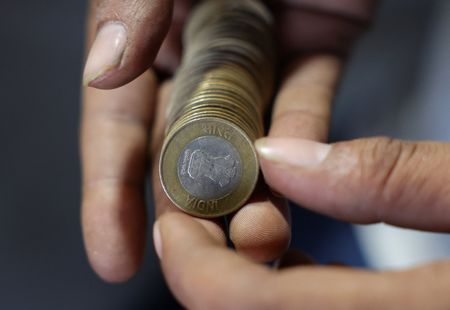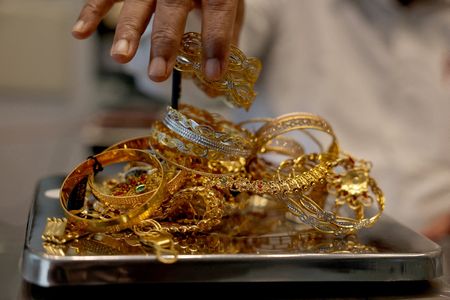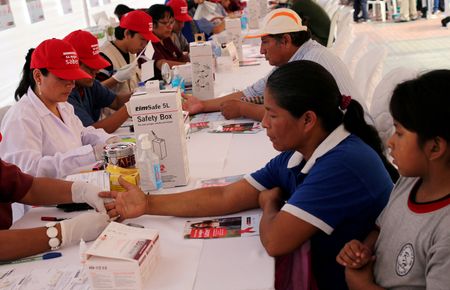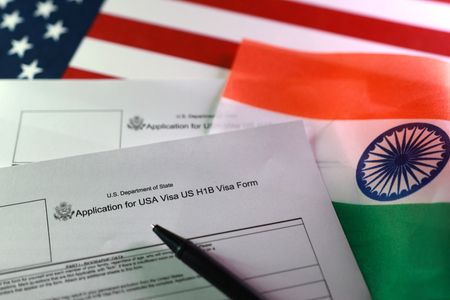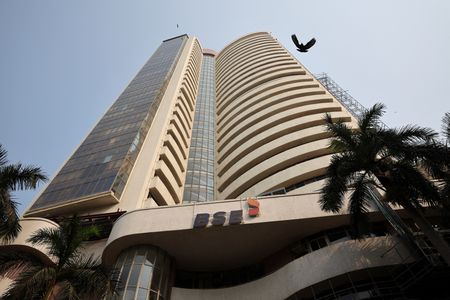(Fixes typographical error in paragraph 2)
By Jaspreet Kalra
MUMBAI (Reuters) – The Indian rupee ended nearly flat on Wednesday as likely intervention by the Reserve Bank of India helped stave off pressure on the local unit amid worries over steep U.S. tariffs and a visa fee hike.
The rupee closed at 88.69 against the U.S. dollar, a whisker away from its all-time low of 88.7975 hit on Tuesday.
Traders said that the central bank likely intervened across segments such as non-deliverable forwards (NDF), currency futures and the OTC spot market to help support the rupee.
The RBI did not immediately respond to an email seeking comment.
The central bank “was present everywhere, leading to muted price-action” despite lingering pressure on the Indian currency amid a broad-based pick up in dollar strength, a trader at a state-run bank said.
While dollar demand was relatively subdued compared to Monday, “the rupee’s path of least resistance seems to be towards further weakness,” the trader added.
The central bank has stepped up its presence in the offshore NDF market to support the rupee, Reuters reported earlier this month.
“The RBI appears to be allowing gradual weakening of the rupee, intervening selectively to smooth volatility rather than attempting to defend a fixed level,” said Abhishek Goenka, chief executive at FX advisory firm IFA Global.
Dollar demand linked to gold imports coinciding with concerns over the impact of the H-1B visa fee hike has added to pressure on the rupee, according to bankers.
India’s benchmark equity indexes, the BSE Sensex and Nifty 50 fell about 0.5% each on Wednesday, with the IT index down 0.7%, reflecting investor nervousness about the impact of the change in the H1-B visa fee.
The dollar gained 0.3% against a basket of peers and was last at 97.6 while most Asian currencies dipped. India’s benchmark 10-year bond yield, meanwhile, nudged higher to 6.486%.
(Reporting by Jaspreet Kalra; Editing by Sonia Cheema)

